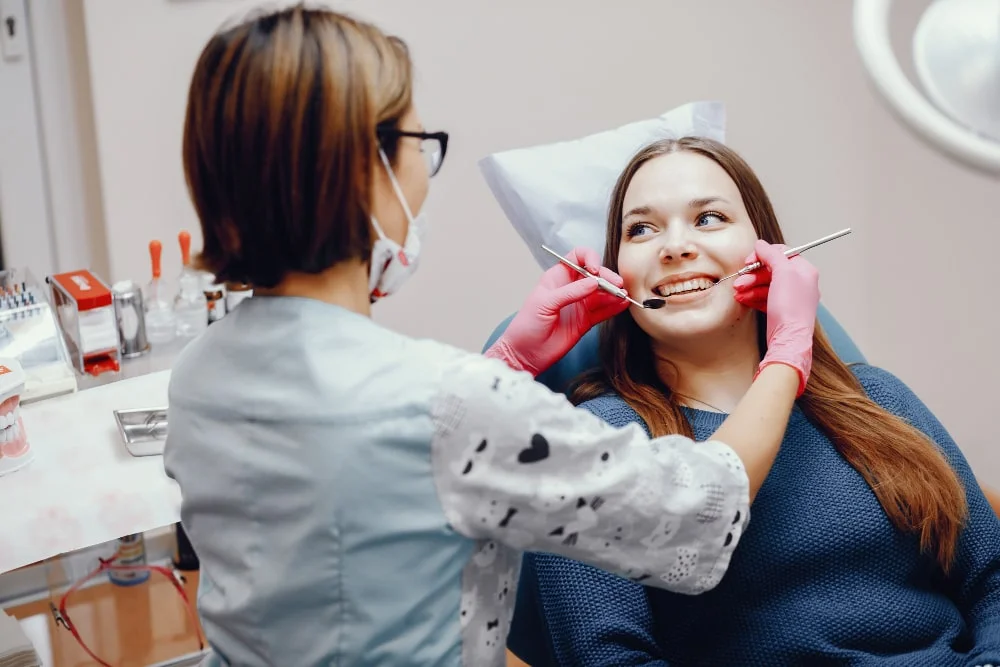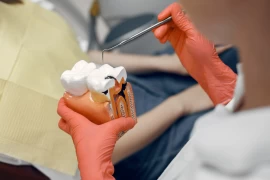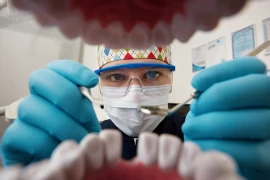
Who Needs Periodontal Treatment?
- Who Needs Periodontal Treatment?
- Who Needs Periodontal Treatment?
- In Conclusion…
As a specialist in periodontology, I always emphasize that oral health is not limited to the teeth alone. The health of the supporting structures around the teeth—such as the gums, alveolar bone, periodontal ligament, and cementum—is just as important as the teeth themselves. These supporting structures form the foundation of overall dental health. Diseases affecting these tissues are known as "periodontal diseases" and, if left untreated, can lead to serious consequences, including tooth loss. So, who needs periodontal treatment? I'd like to elaborate on this question based on both scientific evidence and my clinical experience.
Who Needs Periodontal Treatment?
1. Individuals with Bleeding Gums: Many of my patients become concerned when they notice bleeding while brushing or biting into something hard. In most cases, this is an early sign of gingivitis, which is gum inflammation. If diagnosed and treated early, gingivitis is completely reversible. However, if ignored, the inflammation can spread to deeper tissues, progressing into a more severe condition called periodontitis. At that stage, simple dental cleaning is no longer sufficient—comprehensive periodontal treatments become necessary.
2. Individuals with Gum Recession: Receding gums can make teeth appear longer, expose the root surfaces, and cause sensitivity. Gum recession is not just an aesthetic issue—it’s a functional one as well. This condition is often the result of prolonged inflammation. Through periodontal treatment, the progression can be halted, and in some cases, surgical interventions can help restore the gum line.
3. Individuals with Bad Breath (Halitosis): One of the most common causes of chronic bad breath is the buildup of bacterial plaque and inflamed tissues around the teeth and gums. In such cases, mouthwashes and breath fresheners alone are not enough. If the underlying cause is a periodontal disease, a professional treatment plan is necessary. Deep cleaning, root surface smoothing, and in some cases, antibacterial treatments are essential to address the root cause.
4. Individuals Who Feel Their Teeth Are Loose: Loose teeth often indicate significant damage to the periodontal tissues and are typically seen in advanced periodontitis. If left untreated, this condition will inevitably lead to tooth loss. In such cases, periodontal treatment must be combined with procedures like splinting (to stabilize loose teeth) and supportive surgeries.

5. Individuals with Systemic Conditions (Diabetes, Heart Disease, Pregnancy, etc.): Periodontal disease is not just a local oral issue. In diabetic patients, periodontal diseases progress more rapidly and are harder to manage. Similarly, there is strong scientific evidence linking periodontal disease with cardiovascular conditions. Hormonal changes during pregnancy also increase susceptibility to gum inflammation. Therefore, individuals with systemic conditions require more frequent periodontal evaluations, regular professional care, and personalized treatment plans.
6. Smokers: Smoking narrows blood vessels in the mouth, which can mask the signs of gum disease such as bleeding. This may cause patients to mistakenly believe everything is fine, while severe periodontitis may be developing silently underneath. Since smoking also suppresses the immune system, the healing process is delayed. Thus, in smokers, both the diagnosis and treatment of periodontal diseases are more complex and require close professional follow-up.
7. Individuals Undergoing Orthodontic Treatment: Maintaining oral hygiene is more difficult for individuals wearing braces. Plaque tends to accumulate around brackets, increasing the risk of gum inflammation. For these patients, regular professional cleanings and, if necessary, periodontal treatments are essential. Healthy gums are a prerequisite for the success of orthodontic treatments.
8. Individuals with a Genetic Predisposition: Some individuals may develop aggressive forms of periodontitis despite maintaining good oral hygiene. This could be due to genetic predisposition. People with a family history of early tooth loss may experience periodontal problems at a young age. These individuals should be evaluated early by a periodontist and placed on a preventive treatment plan.
In Conclusion…
Periodontal treatment is not only necessary when an infection is present but also as a preventive measure for those at risk. Since periodontal diseases often progress painlessly, patients may not notice symptoms for a long time. For this reason, early diagnosis and regular check-ups are essential to keep your teeth for a lifetime.
As I always tell my patients as a periodontology specialist:
“Take care of your gums before you lose your teeth.”
Paying attention to even the smallest change in your mouth and consulting a professional can protect you from serious problems in the long run. Healthy gums open the door to a healthy life.

Prof. Dr. Elif Eser ACAREL
Periodontology Specialist





